Believe it or not, your legislators want to hear from you on issues that are of importance to you. Your voice has an influence on decisions that they make for the district and can even sway their support on issues of policy. If they hear from enough of their constituents on any one issue, they are compelled to provide you (as well as the rest of the district) with a response on where they stand.
The more we engage with them regularly, voicing our concerns factually, and explaining in a reasoned and logical manner, the more they will come to recognize your name and correspondence with value.
Handwritten Letters are regarded with the most weight, as it shows some sacrifice of your time to sit down and perform the task with focused thought & intention.
We will walk you through every step of the process. Follow the steps outlined here to successfully establish a relationship with your legislator's office.
Why should you write a letter to your state legislators?
You have two goals for sending a handwritten letter:
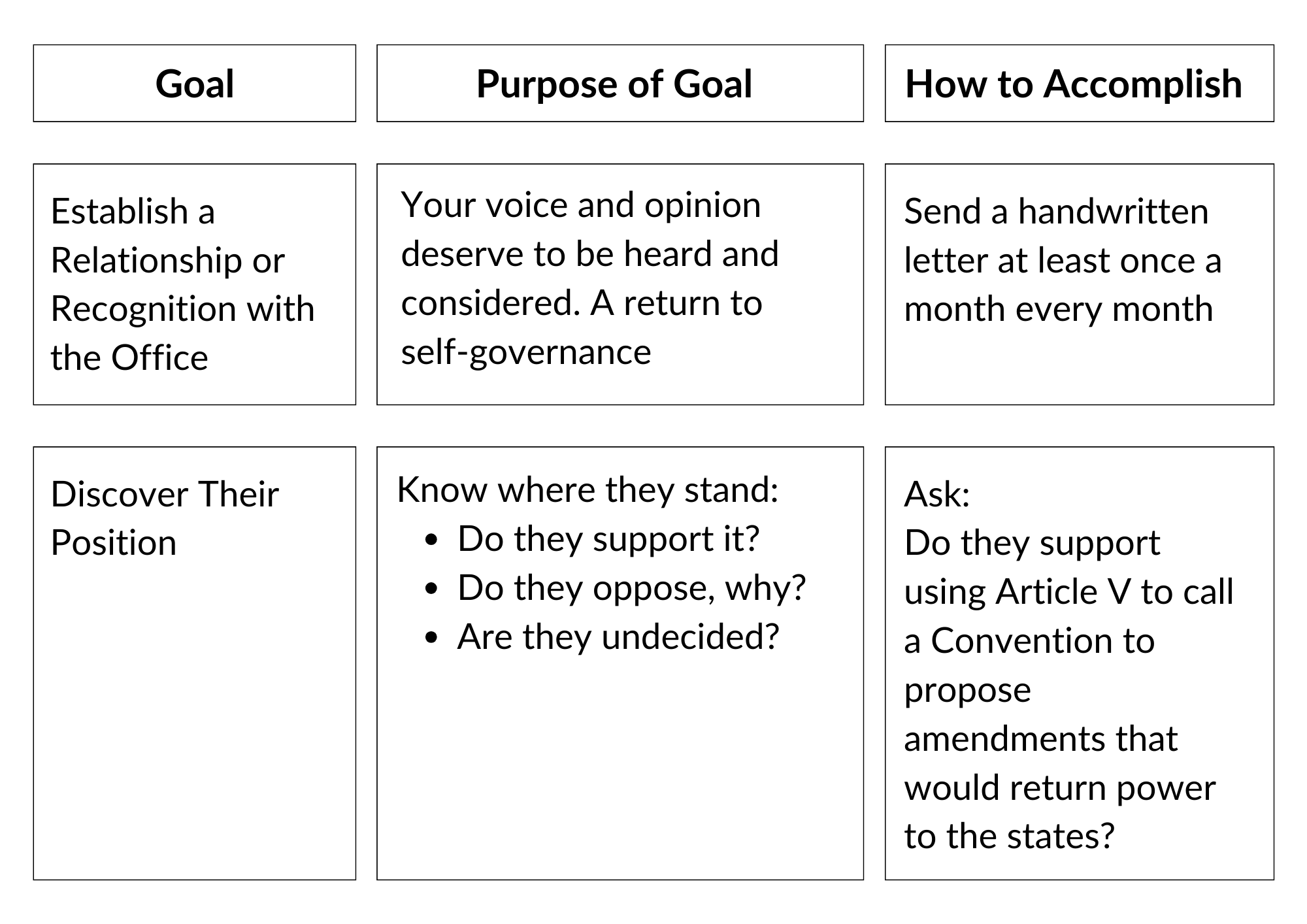
What are you supposed to write about?
-
Give the reasons for your support
-
Explain how you &/or your family, community, business, or profession are being affected.
-
Then explain the solution in Article V.
-
Conclude your letter by asking a question, in order to prompt a response.
-
Consider printing out one of our blog posts to include in the envelope.
-
Alternatively, print one of the articles from our Objections page to include with your letter.
What should you do if they respond?
Contact our State Director by sending an email to:kimberly.hogan@cosaction.com.
After you receive a response do you still send monthly letters? Why? What is your goal to accomplish at that point?
Yes! Continue to send a handwritten letter at least once a month every month.
Why? Because you need to maintain your influence with them on this issue.
Your goals will depend on their stated position: support, oppose, undecided. Refer to the charts below to determine your next goal:
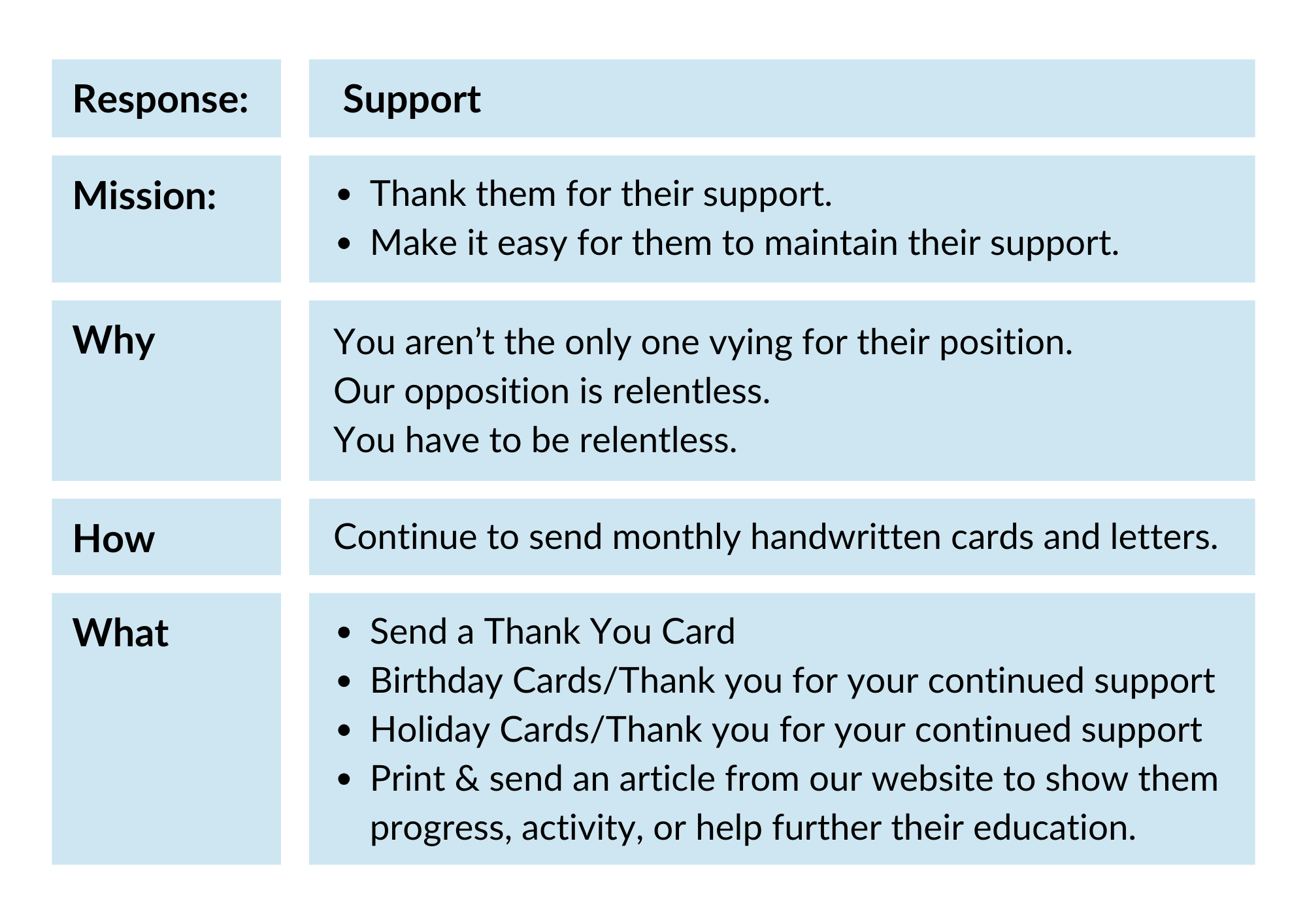
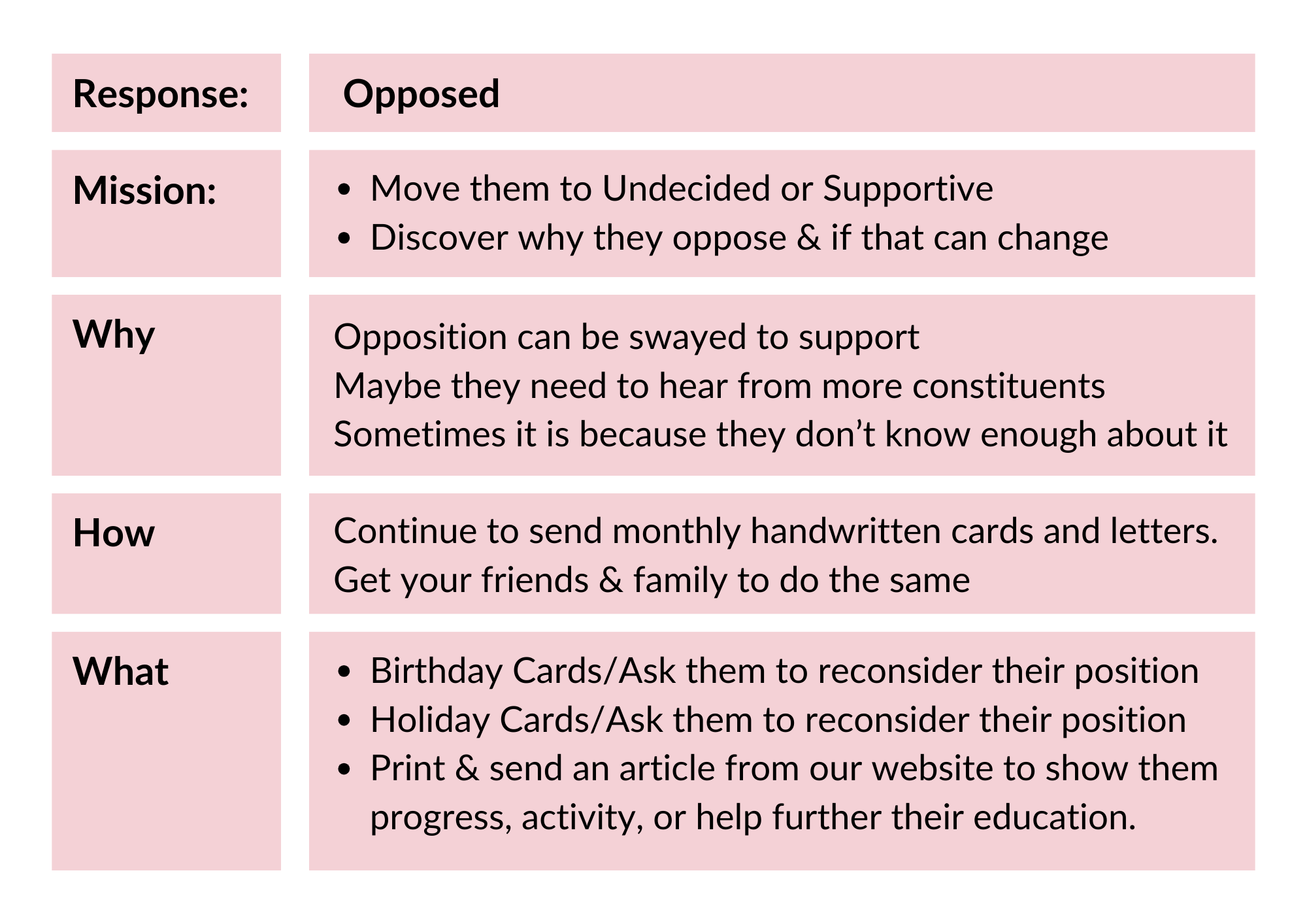
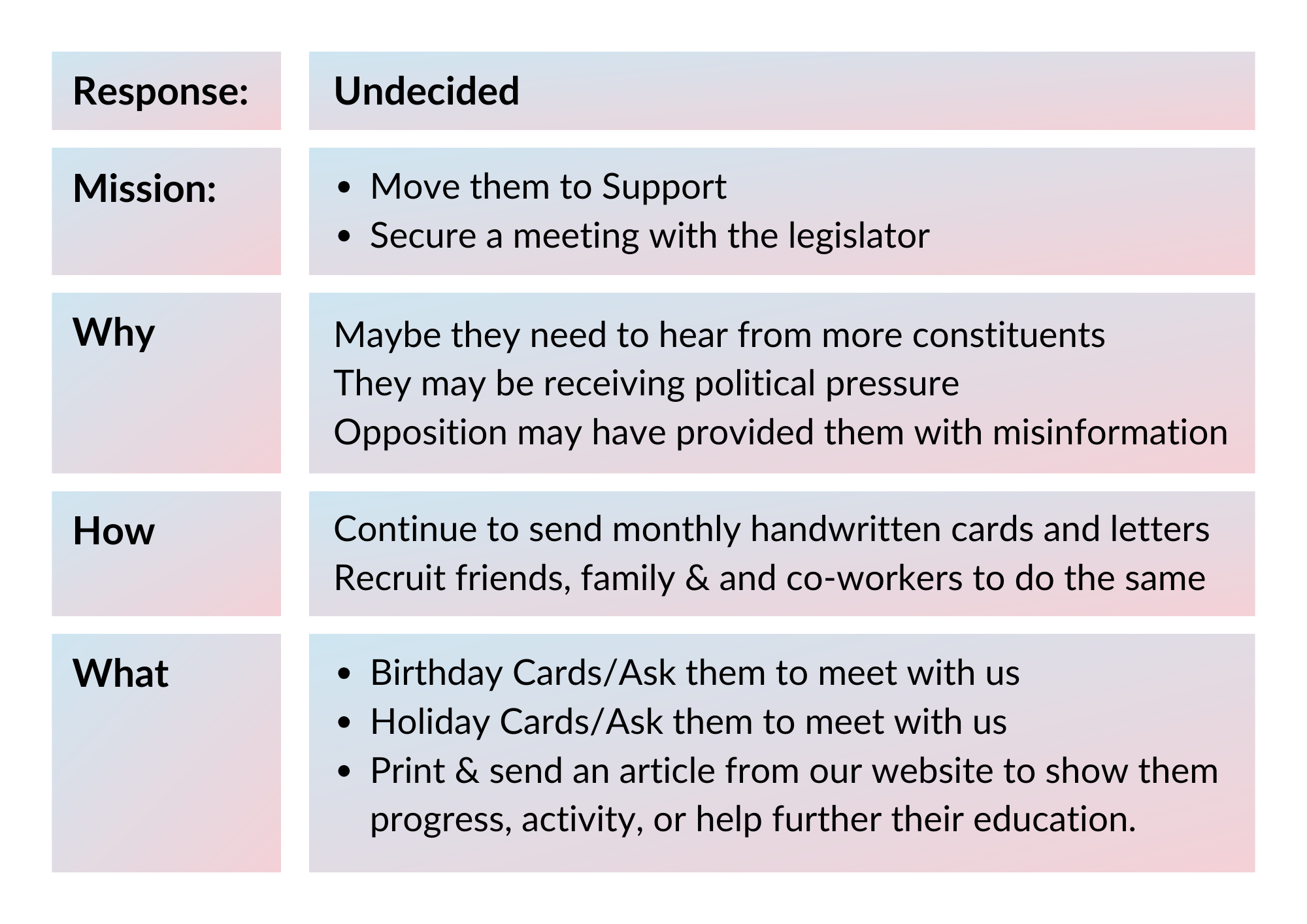
Some Guidelines for Writing Your Legislators
Click the download button at the end of this section to have a copy of your own.
| Address your letter properly | Elected representatives are addressed as “The Honorable” followed by their name. |
| Stick to a Single Issue | There may be multiple things you want to talk about but do it one at a time, you can always write another letter. Don’t go off on rabbit trails-stick to your topic |
| Be Brief and Constructive | Try to keep it to one page. |
| Use Your Own Words | They can spot a scripted response a mile away. Share why you support from your heart. |
| Write Legibly | Handwritten has more value than typed. |
| Be Kind | Most people, including legislators, don’t respond positively to threats, rudeness, or accusations. |
| Don't Send Just One! | Send a letter or card once a month every month. Or once a week! |
| Influence Others | Get your friends and family to send them too. |
| Always Ask | Ask them Where They Stand? |
| It Doesn't Have to Be a Letter | It can be a blank card with a simple sentence. As an example: I support the use of Article V to return the power to the States. Do you support returning power to the State Legislature? |
| Mail or Hand-Deliver Your Letter | We recommend to the district office closest to where you live |
How to Address the Envelope & Letter Appropriately
Click the download button at the end to have a copy of these instructions to share with friends and family.
There are some basic universally understood rules for how to appropriately address elected officials. If you are looking to make a good impression and wow them with your communication etiquette, then look no further than the examples below. The parts to pay attention to are highlighted for you.
| How to Address the Letter: District Office | How to Address the Letter: Capitol Office |
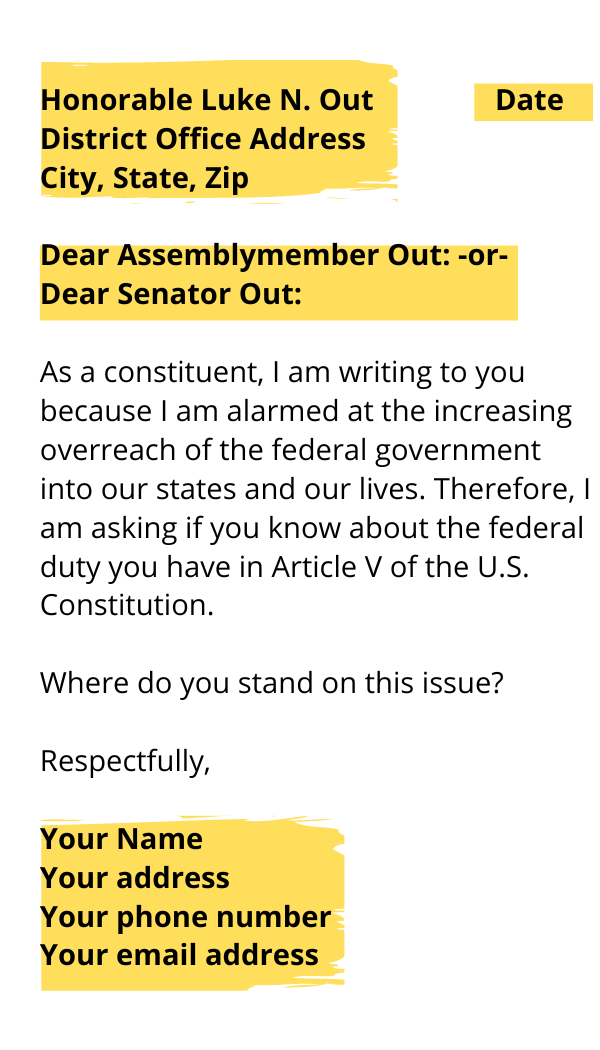 |
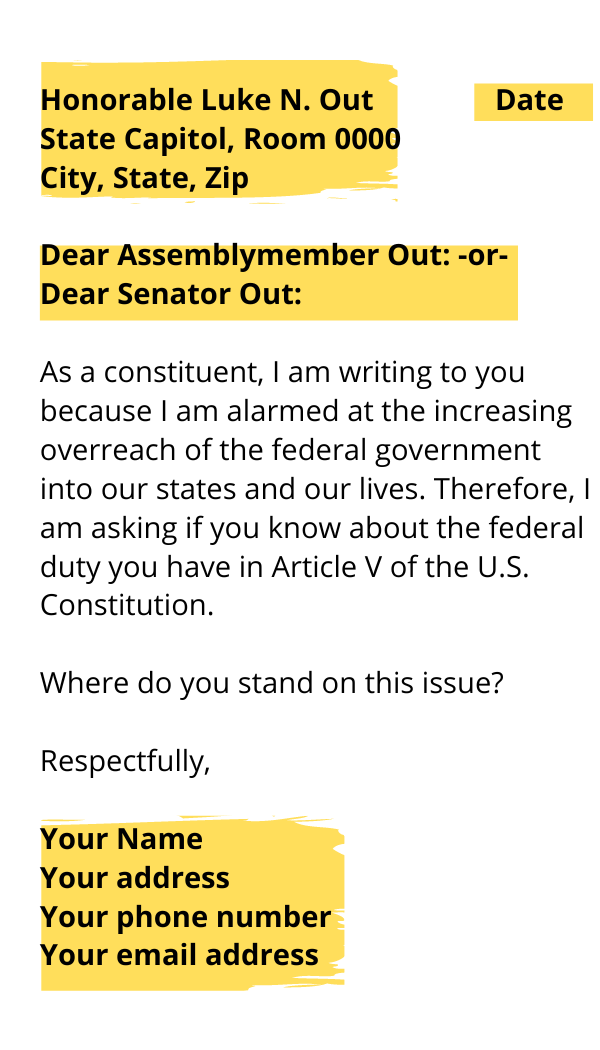 |
| Example Envelope: District Office | Example Envelope: Capitol Office |
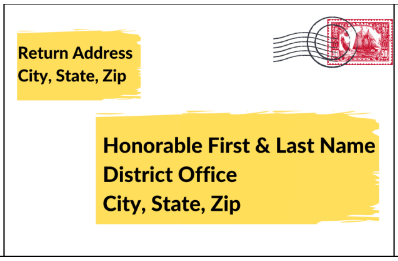 |
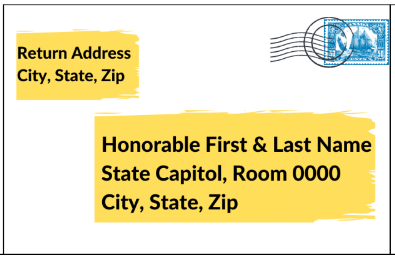 |
|
|
Video#1 - Finding Your Legislators' Address |
FAQ’sQ: What are the three topics that would be addressed in Convention? A: Term Limits, Fiscal Restraints, Limits on Scope & Jurisdiction of the Federal Government Q: Have we filed a Resolution here in California? What is the number to include in the letter? A: Yes. California filed a resolution in 2016 and was heard in committee in April of that year. It did not get a passing vote and died. We have not refiled a resolution so there is no number to associate it with. Q: Will California be filing a Resolution this year? A: Contact the State Director if you would like more information: Kimberly Hogan - 530-870-0084 - kimberly.hogan@cosaction.com Q: How many states have passed so far? A: As of September 25, 2023, we have passed 19 states |
|
Something To Think About |
|
You walk through the door after a long day's work and walk into the kitchen. You set your keys on the counter next to the morning paper that you didn't have time to read. Opening the fridge you grab something to drink and then turn to the cupboard for the first snack your hand reaches for. Thank you, State Legislature! Amused, you read on. Apparently, a "resident" at the State Prison has been writing to the legislature every week for a while asking for money to expand the prison's library. He had been losing hope that he would ever get a response and then one day, in an attempt to get him to stop writing, the legislature granted his request and he was able to expand and upgrade the tiny little prison library. Glancing back down at the piece you just read you realize that if he could do it, then surely you could too. "Andy Dufresne" ProjectIf you have seen Shawshank Redemption, then you already know the story behind his letter-writing efforts. But for those of you unfamiliar with it, here's a rundown. Andy takes charge of the library at the prison and starts to send applications to the Maine State Senate for money for books. Some time goes by and he gets no response to his weekly letters. Then one day the Senate finally relents, anticipating that Andy will stop requesting funds now that his request has been answered. Instead of halting his letters, he starts writing twice as often. His diligent continued communication results in a major expansion of the library's collection, and he also helps a number of prisoners earn equivalency diplomas, preparing them for life after parole. The moral of the story... if you think you are too small to make a difference, you have never been alone in a dark room with a mosquito. You have the power to make a difference. But only if you take action and persistently repeat it. Your action will make a difference. The time is now to take action.
|








